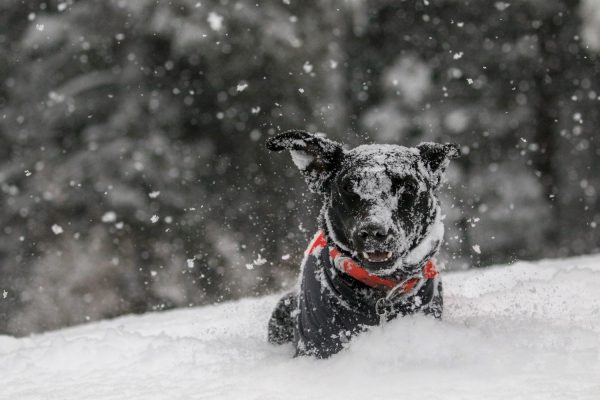As the UK starts to battle the colder months and the chances of snow becoming higher, we all start to shy away from being outside and facing the freeze.
It is important to remember, that like us, many of our pets do deal too well with the cold either. Just like us, our pets can suffer from hypothermia and other cold-related accidents, as responsible pet owners we need to do what we can ensure our pets are kept healthy and safe during the winter months.
Read our Top tips for helping your pets through the winter freeze!

Top tips for helping your pets through the winter freeze
- Avoid icy lakes and ponds
Many dogs love to swim and it may be part of there daily routine to swim in their favourite pond. Avoid this during winter, not only will the water be especially cold, if parts have frozen over it may cause further risk to your pet. If the whole area is frozen avoid allowing your pet to stand on the ice, the ice most likely will not support the weight of your pet. - Icy falls
Avoid injuries to limbs and other body parts by avoiding especially icy walks, while our pets may have slightly better balance than use they are still able to slip causing potential sprains and even fractures. Ice is more prominent on early morning and late evening walks when it is colder if needed change up your walking times during the colder months allowing time for the ice to thaw. - Beware of road grit
We should be routinely washing the paws of our cats and dogs after walks during the winter months. Road grit contains large amounts of soil and can be damaging to your pet when ingested after licking their paws, it is also worth noting that some councils will use anti-freeze in their road grit – a chemical even more toxic to your pet which can cause renal failure. - Buy a coat
Consider buying your dog a warm coat for the winter months, if your pet is tolerant of wearing a coat this will help to make them feel more comfortable. Coats for breeds such as greyhounds and whippets are extremely beneficial. If you own a cat, why not consider purchasing them a new bed for the winter months, cats love nothing more than being cosy so radiator beds are perfect for cats. - Check under your cars
As previously mentioned, cats love nothing more than being cosy. Unfortunately, this can sometimes mean they will hide under car wheel arches in order to feel additional warmth. During the winter try to get into the habit of knocking on your car bonnet before getting in your car, if there is a cat sleeping underneath, it will give them a warning and allow them to move. - Change your walking routine
During the milder months your dog may enjoy a nice long walk, however, this may not always be the same during the cold months. If your dog is struggling with his normal walking time during winter, change up their walking routine, try a couple of smaller walks a day rather than one longer one. - Be aware of hazards covered in snow
If we have large amounts of snow it is important to be more aware of potential hazards. Potholes and pavement breaks may become covered and harder to see, take extra care on walks to ensure the safety of both your pet and yourself. - Antifreeze
Just small amounts of antifreeze (1-2 licks) can cause renal (kidney) failure in our pets. Take extreme care when using antifreeze and ensure when not in use that it is put away and out of sight. If you suspect your pet may have ingested anti-freeze call your vet for an emergency appointment immediately.


Join the conversation